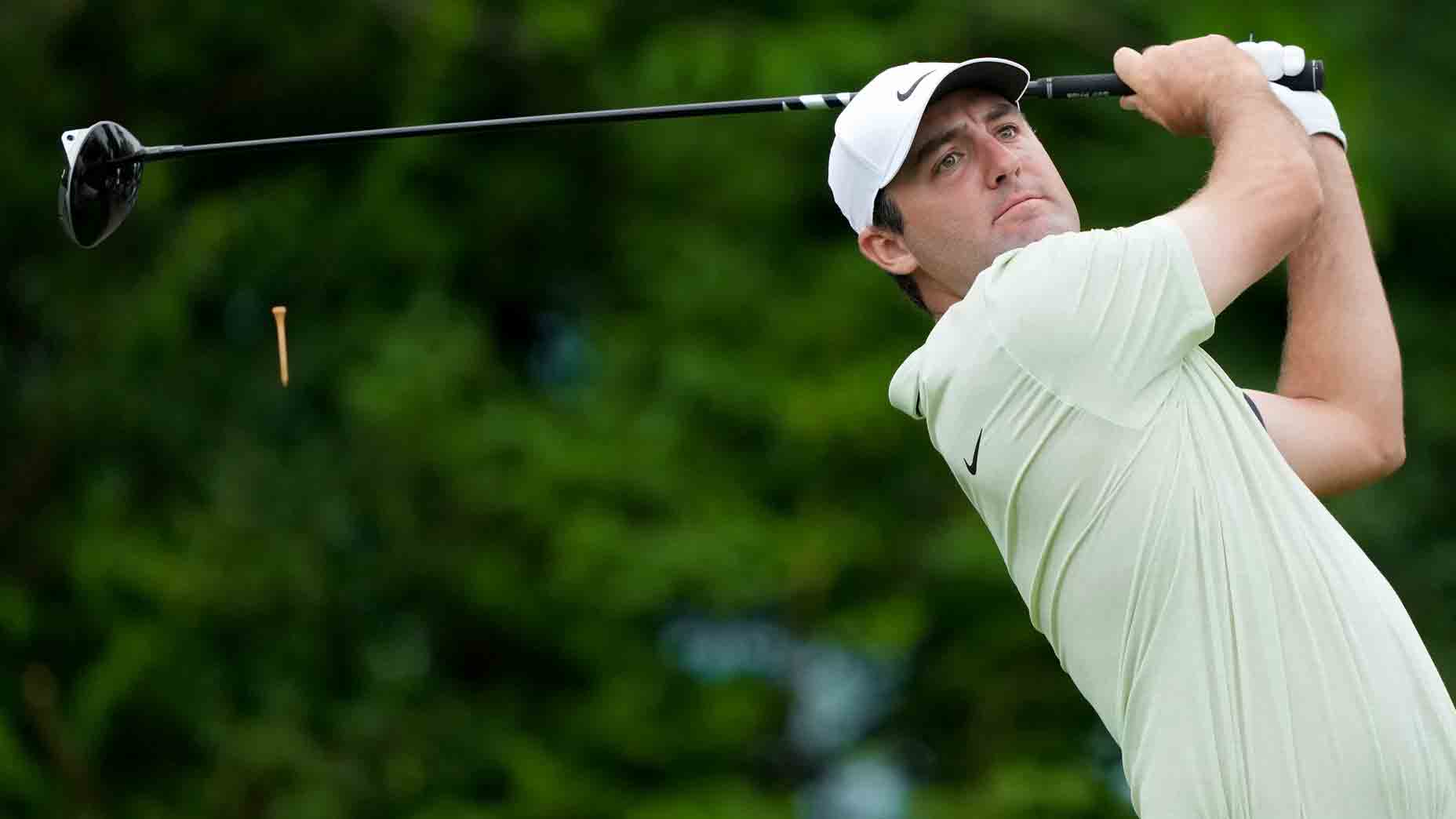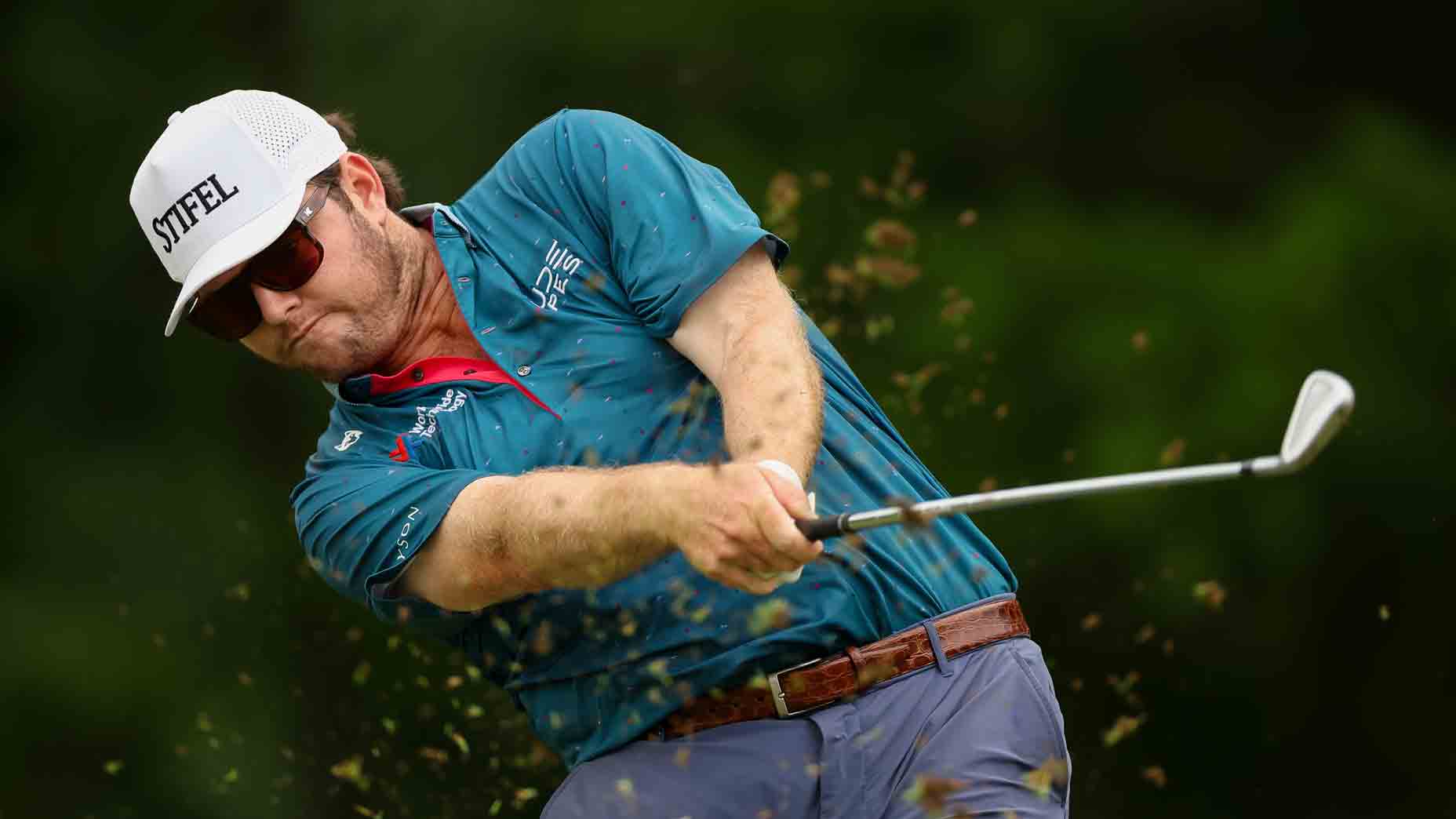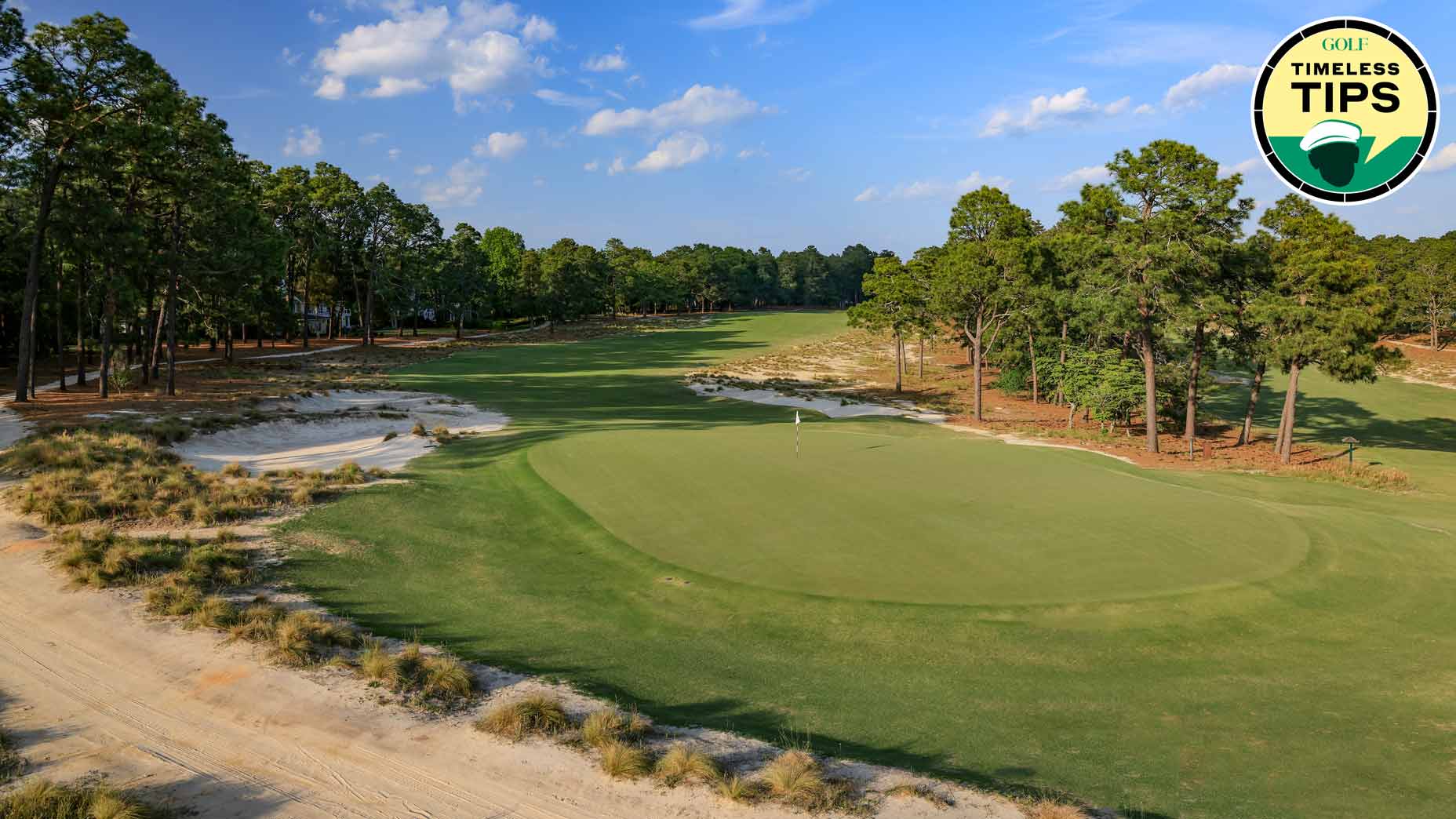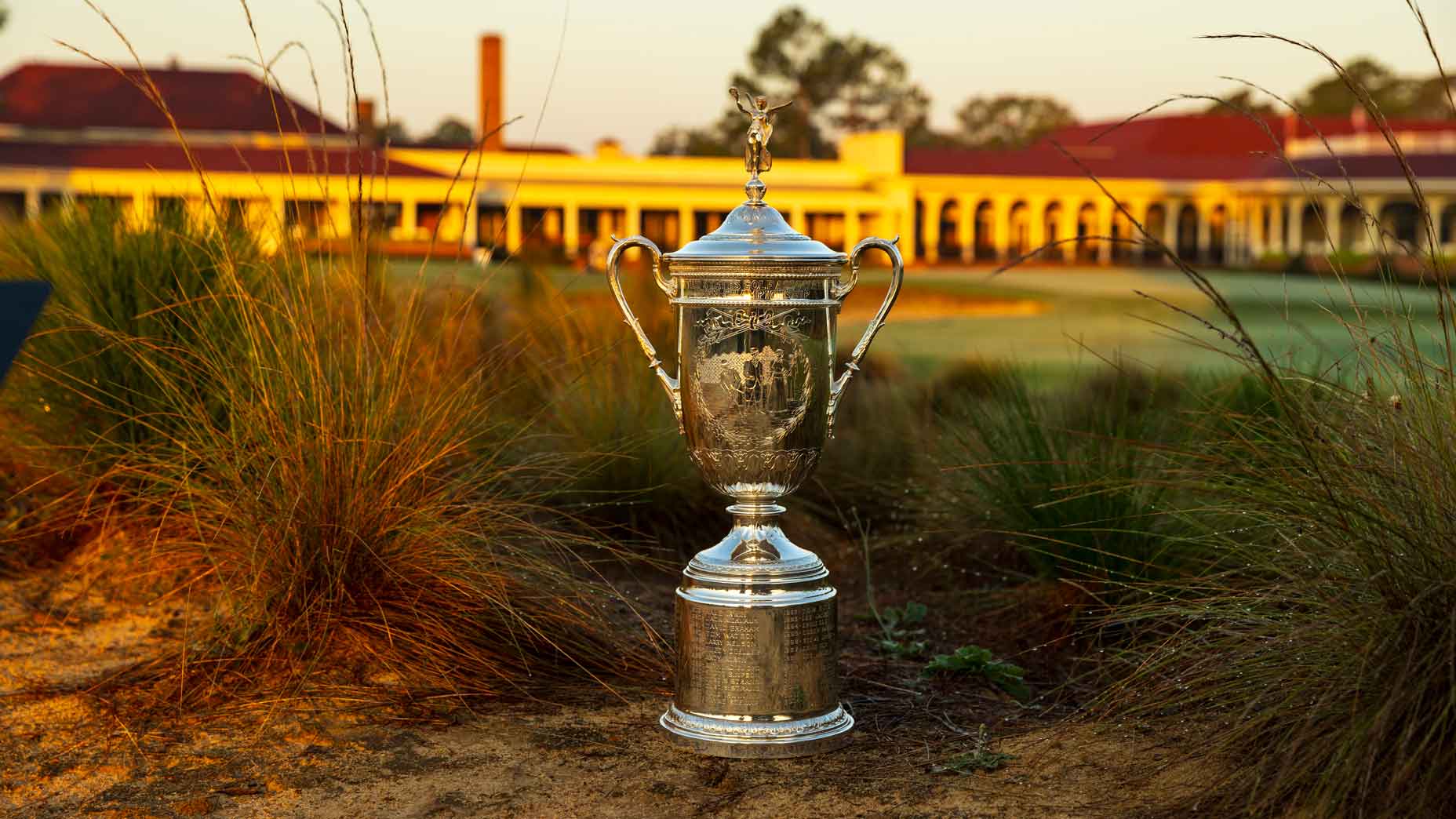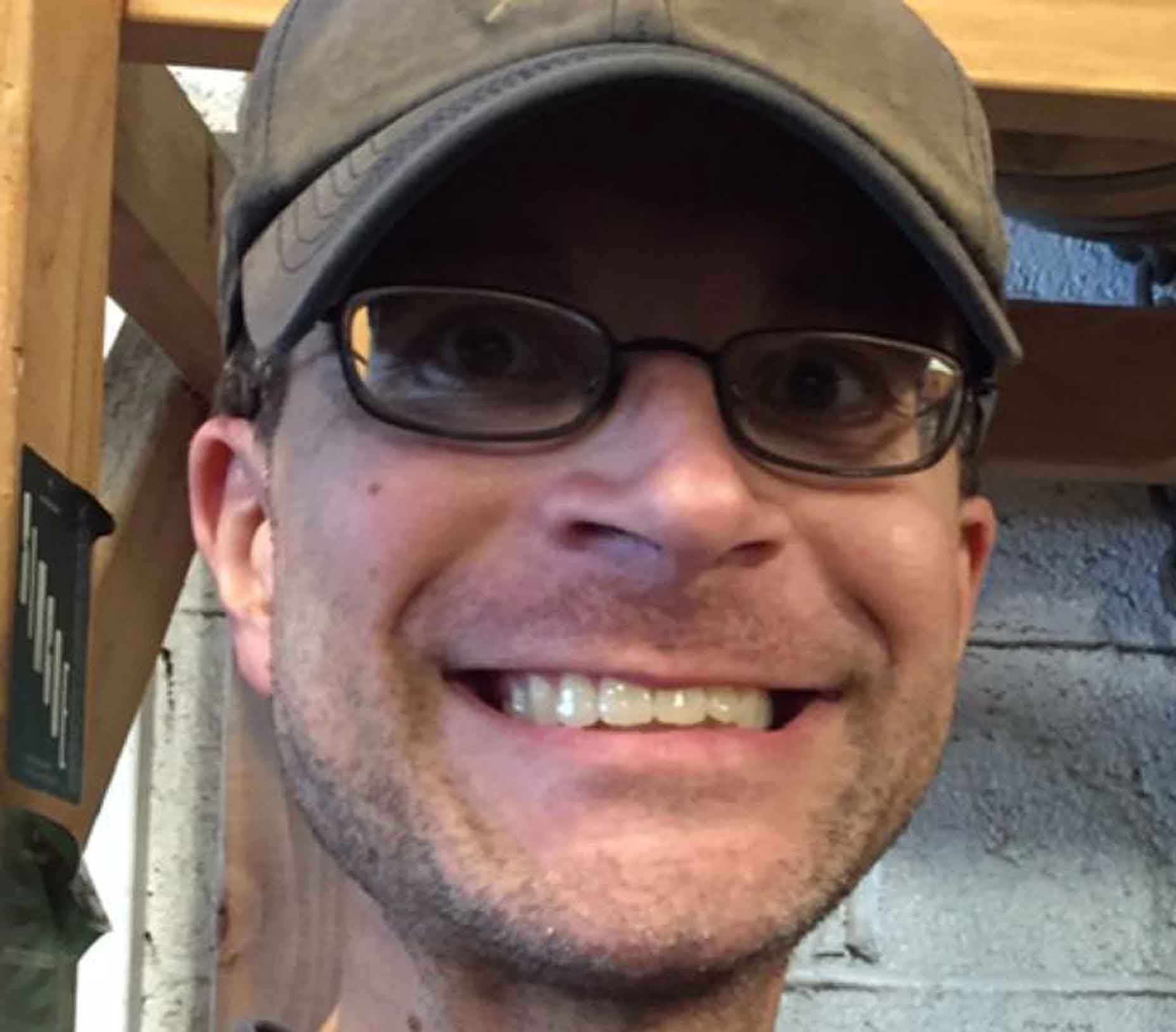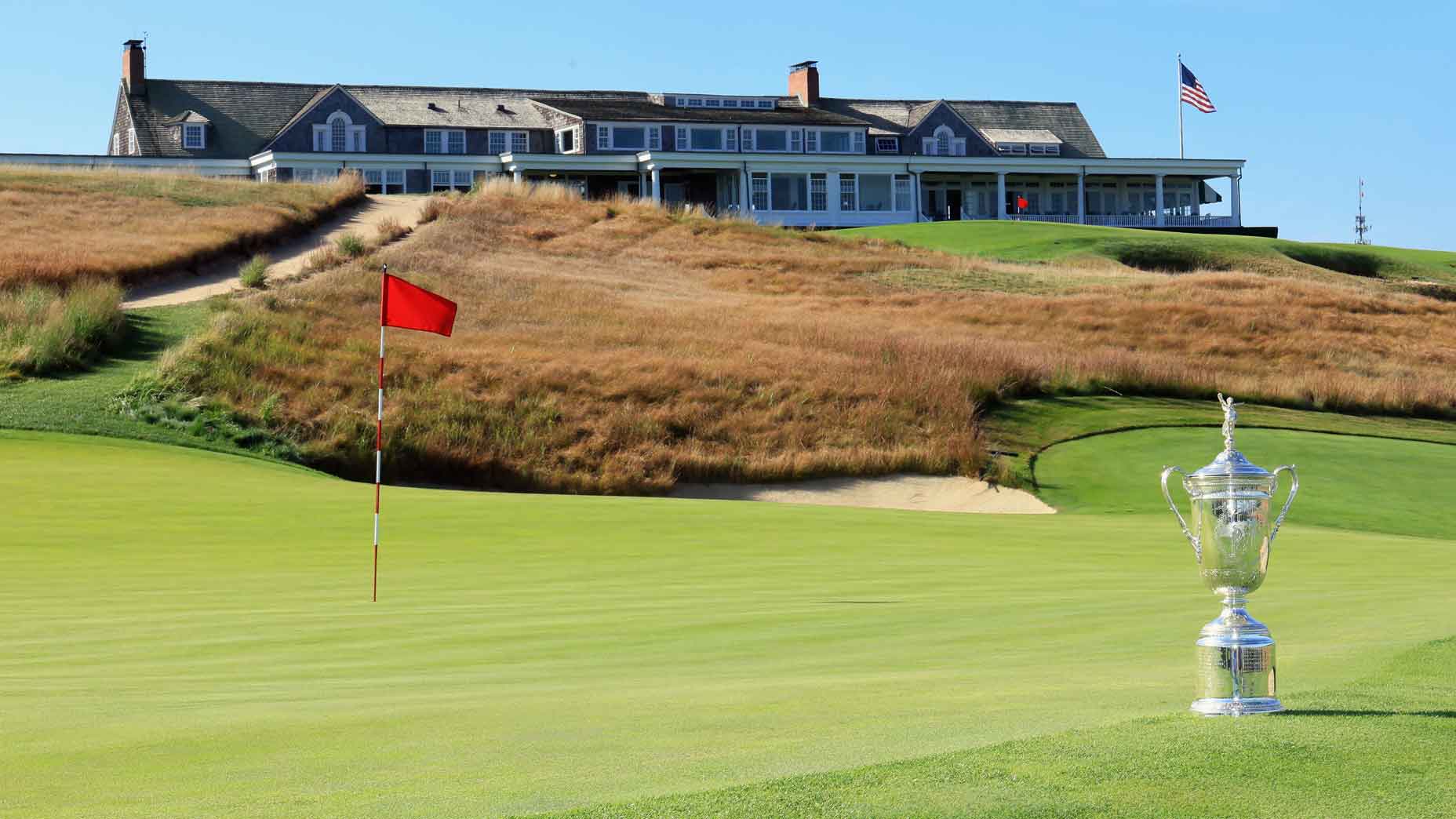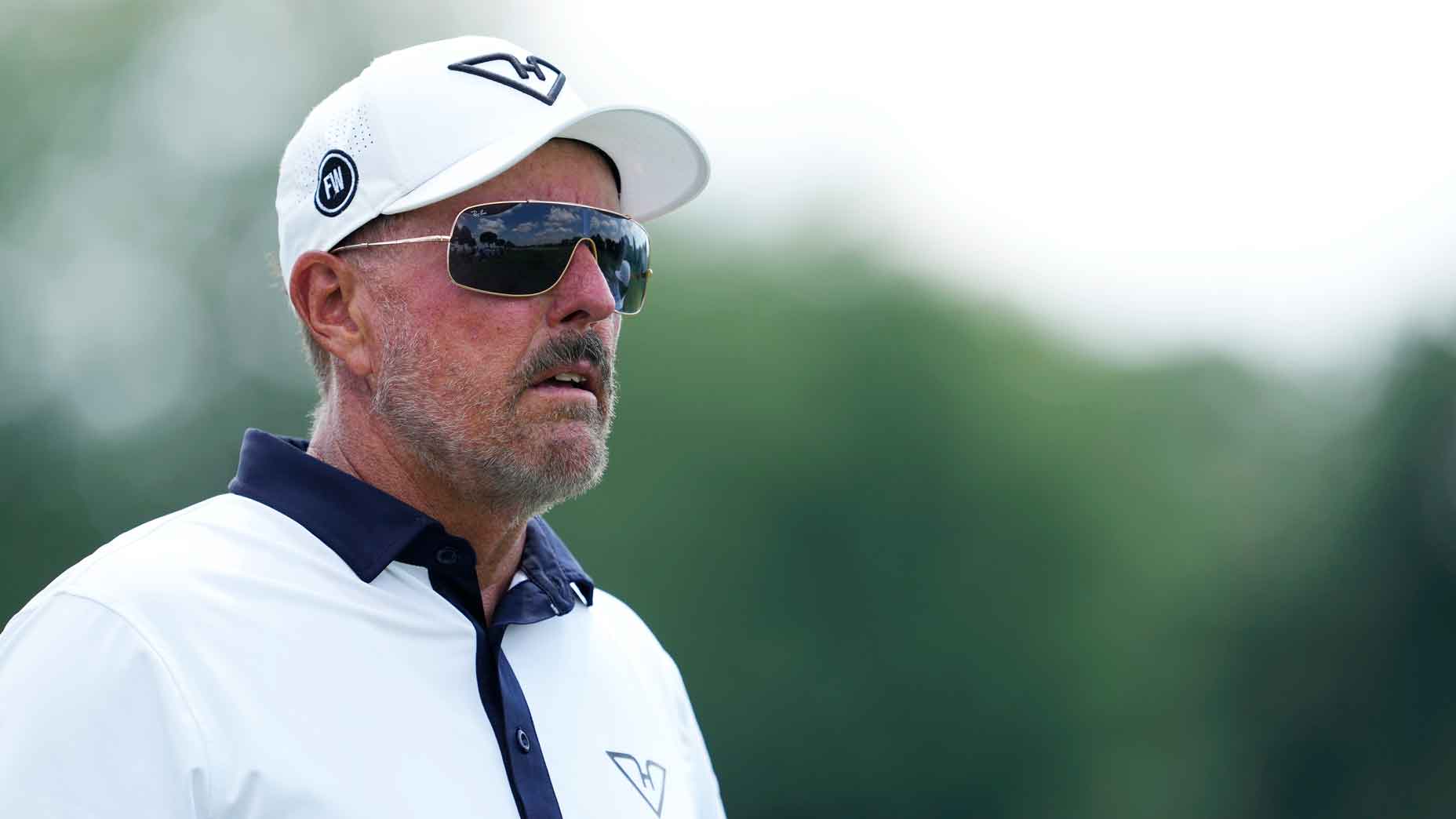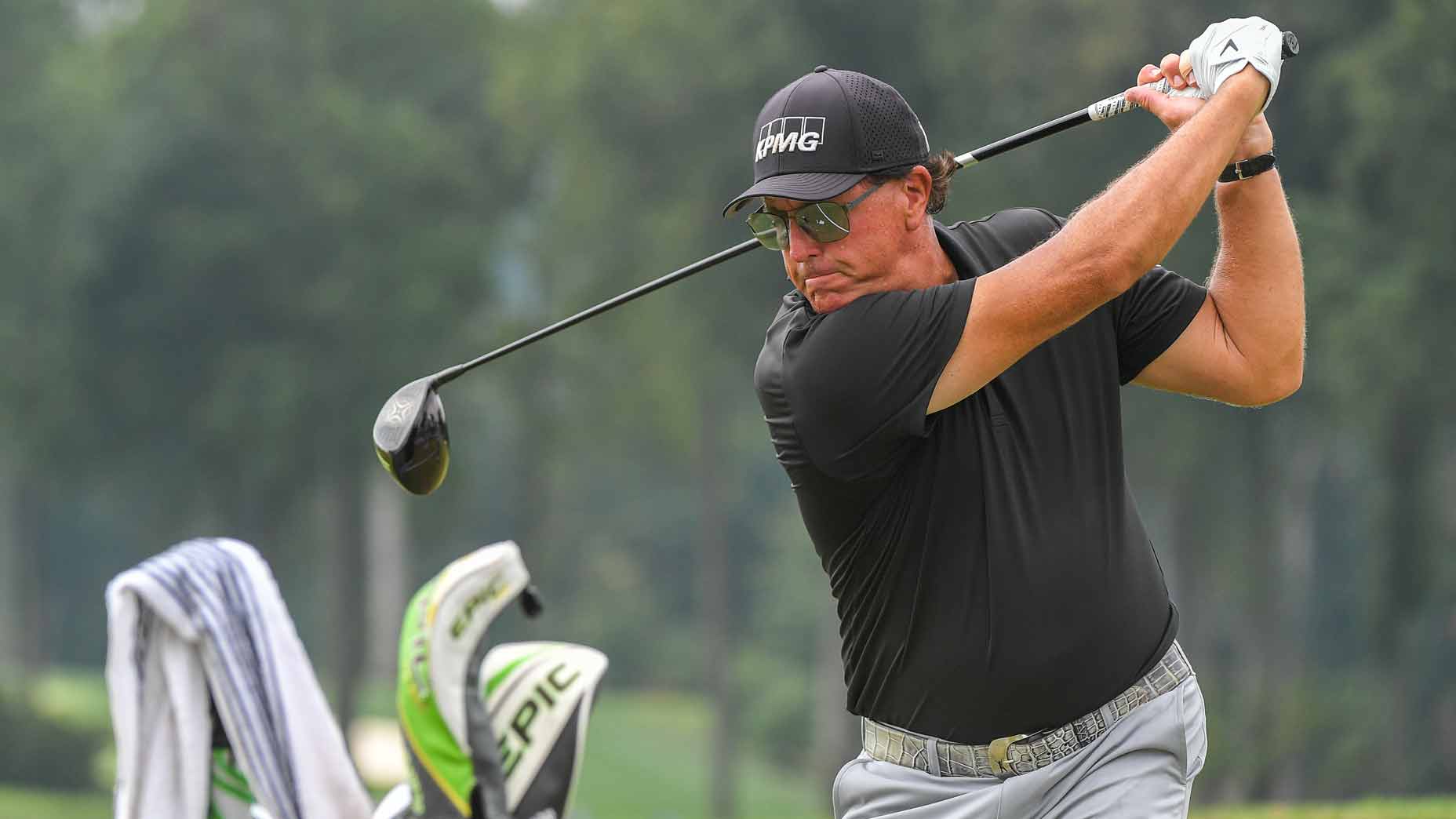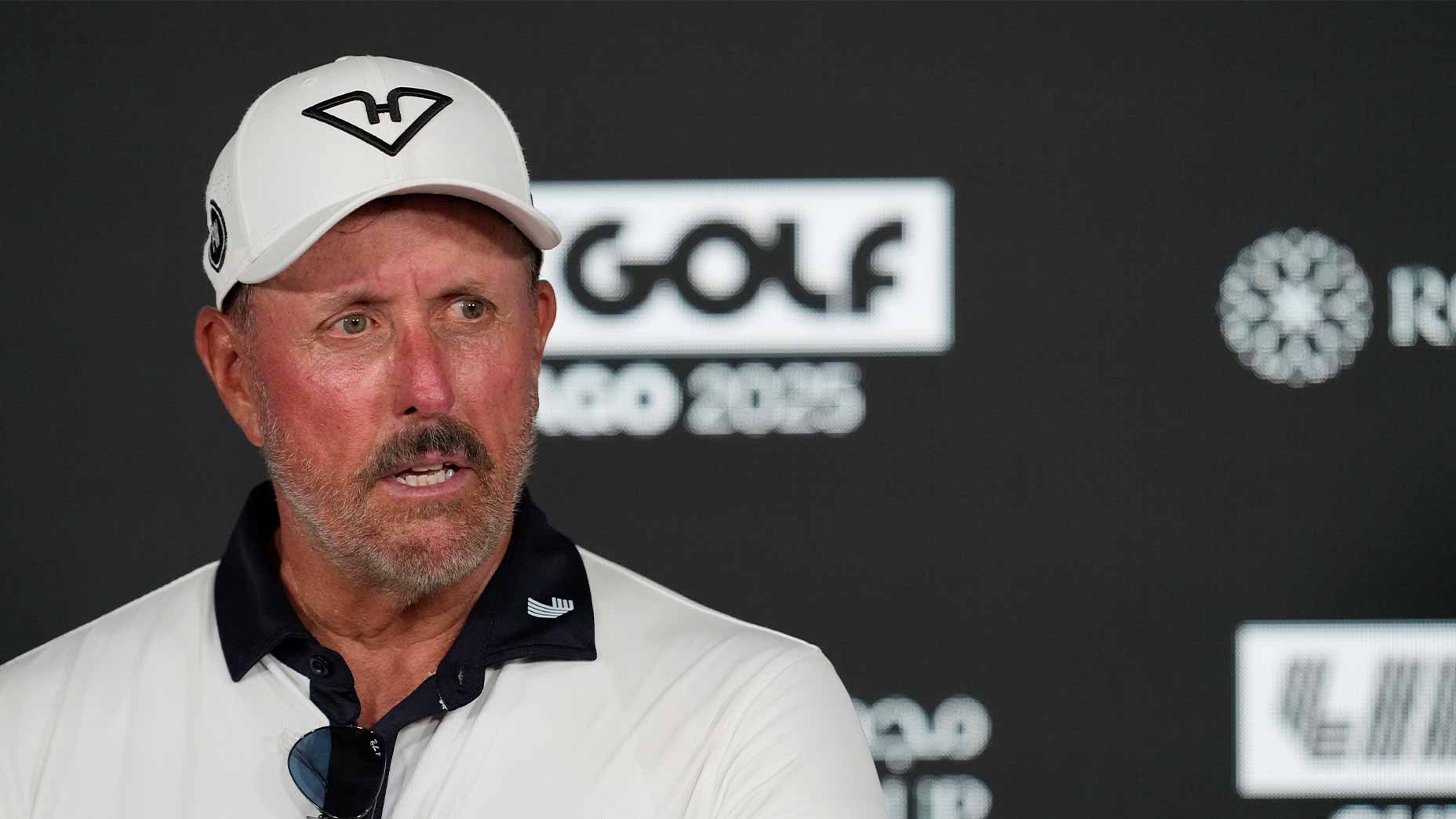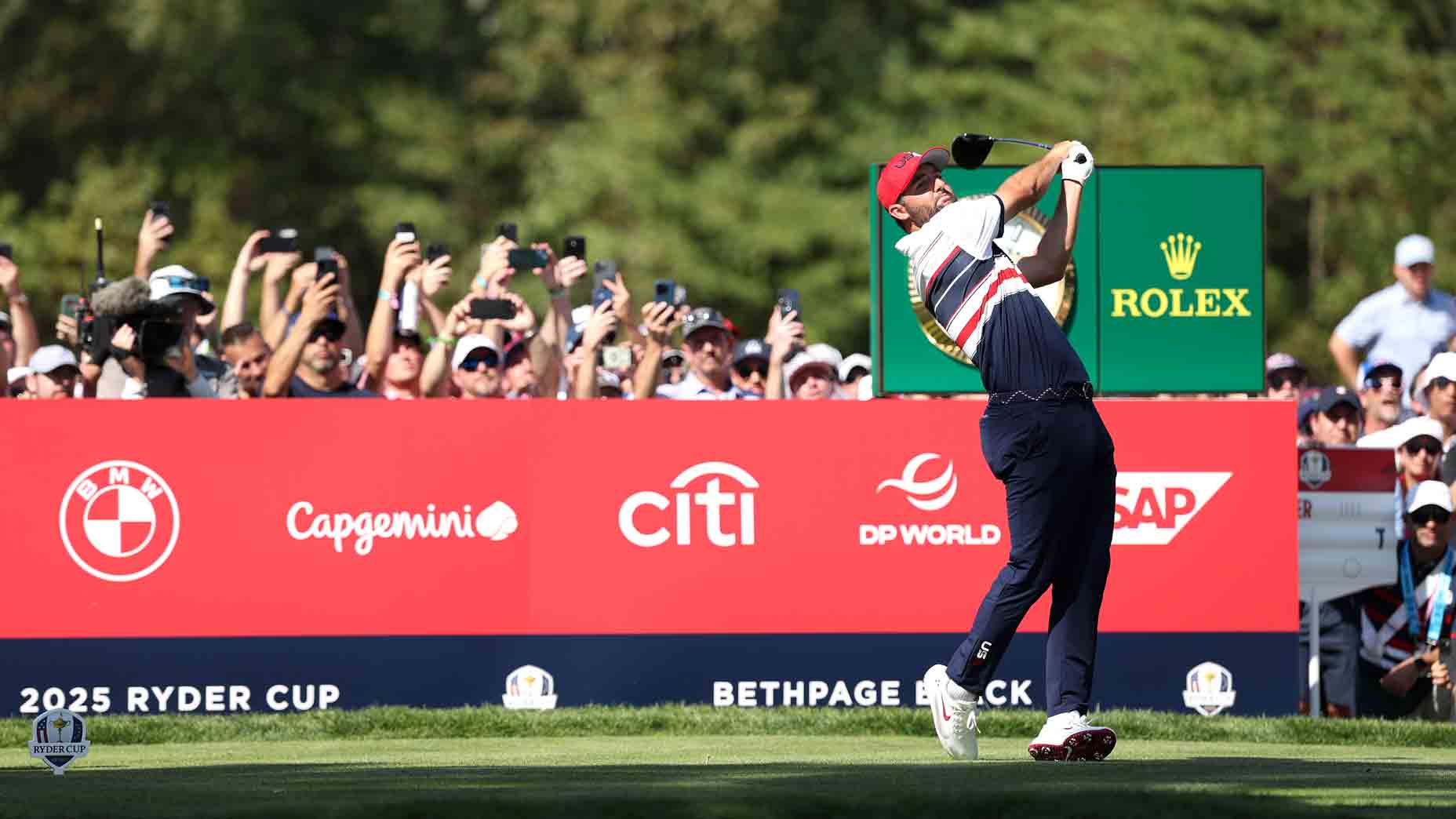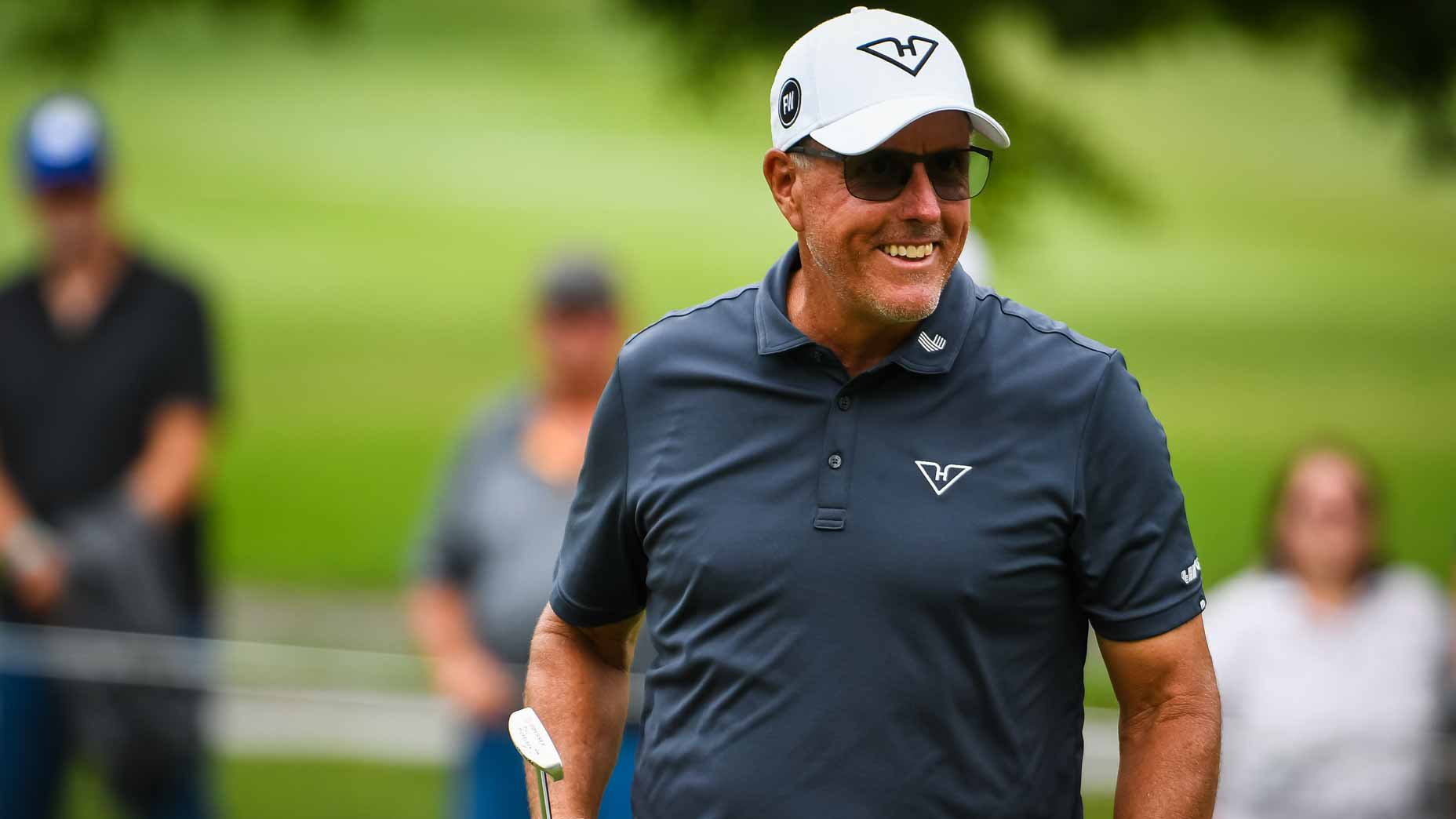PINEHURST, N.C. — The beeper never did go off.
But what if it had?
It’d been a curiosity 25 years ago, at the 1999 U.S. Open at Pinehurst No. 2, where Phil Mickelson chased major victory No. 1, while he and wife Amy were days away from introducing child No. 1. The scene was not unlike earlier this year, when Scottie Scheffler played the Masters, while he and wife Meredith approached her due date. In the Mickelsons’ case, a plan was set. Should there be news, he’d immediately exit North Carolina for their home in Scottsdale, Ariz., regardless of day — or placing — in the tournament. He’d also be alerted by a beeper, which he handed to bag man Jim “Bones” Mackay, and Mackay kept it in his pocket.
In the end, Mickelson played on, and he and final-pairing playing partner Payne Stewart delivered one of the championship’s most theatrical closing rounds. On the par-4 16th, on a 25-foot, double-breaking par putt, Stewart pulled even with Mickelson atop the leaderboard. On the par-3 17th, Stewart went ahead after dropping a 6-iron to 4 feet, though he was nearly matched after Mickelson knocked a 7-iron to 6. On 18, after Mickelson missed a 25-foot birdie chance, Stewart won on a 15-footer for par. An iconic fist-pump followed. As did a memorable embrace. Stewart pressed both hands on Mickelson’s cheeks and reminded him of what was soon to arrive.
“You’re going to love being a father.”
And the beeper sat dormant.
But there’s at least one question, though, and it was recently posed to Mackay.
“Did you ever test the beeper to see how loud it would get or the motion it would make if it went off?”
“That’s a great question,” he said, laughing. “And the answer to that is no, I didn’t. But I probably should have.
“Yeah, I don’t know if that thing was on vibrate or beep or what, but that’s a really good question.”
This week, as the U.S. Open returns to Pinehurst, few are more intertwined in the proceeding’s salient topics than Mackay. He’s on the NBC broadcast team, with the announcement of his full-time return coming last week. Before that, he carried for Justin Thomas. There’s also those four days now a quarter-century ago. With Mickelson. And a U.S. Open run, one that preceded major wins together. And a beeper. So I called him. Near the water in San Diego, he was more than good.
Some of our conversation is below, and it is broken up into slightly edited parts.
Notably, one question required a few texts afterward, so let’s start there.
This year’s tournament
Who would you call a dark horse, a surprise contender?
Mackay: “Oh wow. For years, my dark horse was Matthew Fitzpatrick, but he’s used that up on me. I’ve always said that guy was going to win a major or two or three and he’s really, really good. I’d have to think about it, but the great thing about Pinehurst, or at least the last time we saw it, in 2014, was a guy that doesn’t chip particularly well can get away with a little bit more at Pinehurst than you can elsewhere because it gives you that ability to putt from off the green. And I do remember the last time we were there, some really, really good chippers were having trouble making the kind of contact around the greens that they’re used to making based on the grasses, the firmness underneath, what have you. So I think that let a few more guys into the ballgame that maybe have that as not their strong suit.
“Let me just think for a second here. Oh, you really put me on the spot. I’m going to have to think about that and get back to you later in the conversation because I want to give you a quality answer.”
2024 U.S. Open picks to win: Here’s who our staff is betting on at PinehurstBy: Nick Piastowski
I hope this one is not more difficult, but who would be your winner right now?
Mackay: “Well, I’ll say this: If I was a betting man, I would bet on [Xander] Schauffele to win another major this year. [Schauffele won the PGA last month.] I think that it’s way, way easier to win your second major than your first. There’s just something about that guy’s game. He’s got ‘it,’ as do a number of guys out there on the Tour. And I just think that, especially with the two courses we’re going to see here finishing out the year in Pinehurst and Troon and the fact that he’s contended certainly at British Opens in the past and I assume at U.S. Opens also — I don’t have it in front of me — but I just think that he could be a guy, kind of like [Jordan] Spieth did, when he won his first major, rattles off two or three in fairly short order. I also think he has one of the best caddies in the game, too [Austin Kaiser], and that doesn’t hurt.”
In watching the PGA, could you describe the sequence he had on 18, where he has the second shot where the ball’s above his feet, he’s in the bunker, hit that left with an almost baseball-style swing, then a nervy chip, then a nervy putt. What does that tell you about what he accomplished and what he could do?
Mackay: “Yeah, I think he said it himself — and I hope I have this right — that he took a look at that second shot — and we’re talking about one of the very best players in the world certainly, top three, top five, whatever you want to call him — and you can shank that shot very, very easily. I think he did mention that in his post-tournament press conference. I mean, what a position to be in. You’re trying to win your first major. You’re just trying to drive it into play there and make 4 and win, not knowing that [Bryson] DeChambeau’s finished even with you. And now you’re dealing with a shot that you can potentially shank, which, thank goodness, he didn’t, and he effectively put the ball in play there along the left side. I also think beyond that, the fact that he made a putt where he said himself, he was not sure of the break. I think it’s one thing to make it from 6 feet to win your first major championship, where you get up there and you absolutely know the ball is going left or right. But he wasn’t sure. I think he said he thought initially it was going to break left to right, and then the more he looked at it, the more he thought it might go left. And so he played it straight and it went in the left side of the hole. The fact that he was dealing with that level of uncertainty and still put the kind of stroke on it necessary to make the ball go ultimately in the left side of the hole just says so much about how wise he is, how mature he is on the golf course and obviously his ability to execute.”
Obviously one of the other favorites will be Scottie Scheffler and his run this year. Does he remind you of anyone? Is there anyone comparable to him?
Mackay: “I think that Scottie Scheffler has a lot of Jack Nicklaus in him. Certainly his swing reminds me more of a golf swing from the ’70s and ’80s than it does with what’s going on here currently. I think that like Nicklaus and like Tiger [Woods], his ability to plug in and put everything aside, his ability to do that is as high or as effective, if you will, as anybody since those two guys. I think we can talk all day about his generational ball-striking and the fact that he’s putting way, way better. But I think what makes Scottie great — and I think he’s definitely the best player in the world — is where he goes mentally on the golf course.”
2024 U.S. Open sleeper picks to watch: Who might break out at PinehurstBy: Nick Piastowski
What is that like to see up close? When you’re caddying for JT and he’s playing with Scottie, what does that translate to playing?
Mackay: “It’s amazing. The first time I saw Scottie play, I was caddying for Matthew Fitzpatrick during the pandemic, so I guess it would have been the 2020 Memorial. They played the Memorial two-straight weeks and one of those two weeks, we played with Scottie the first two rounds and, at the point, I knew nothing about him, and I remember walking away after the 36 holes and going, holy smokes, is this guy good. And anybody could have figured that out, but the thing that blew me away four years ago was that he had all the shots, that he had plenty of length, that he was this fantastic ball-striker, but he would then hit shots around the green that would blow you away. And certainly obviously Scottie has some kind of game going on with Ted, because every time he holes one from off the green, Ted flashes digits at him because obviously they’re trying to get to a certain number or there’s a wager involved or what have you. All I know is Scottie makes a lot of shots from off the green in addition to all this other stuff he does. In 2020, you couldn’t say enough about where this guy was going, and now that he’s arrived, I just think it’s great and I think it’s great for the game because I think he’s a fantastic human being.”
How far do you see things going for him? Is there ‘X’ number of majors? How far do you think he can take things? How far do you think this run can keep going?
Mackay: “Oh my gosh. I don’t think there’s any question that he’s going to make it to double digits.”
Does he win again this year?
Mackay: “I’ll say yes. Absolutely. If I was going to be five bucks right now either yes or no, I absolutely would bet yes.”
The ’99 tournament
We’ll talk a bit about ’99. What do you remember most about that?
Mackay: “Well, the first thing I remember was — you know the whole back story with Phil and the pregnancy right? So, I remember being there on Monday and Tuesday and thinking there was a 75-percent chance I wasn’t going to work that week. So you had those thoughts in the back of your mind. What was crazy about that week was on Monday and Tuesday, I would go out and follow Fred [Couples] and Davis [Love III] playing because I wanted to watch players hit the ball about the same distance that Phil did, and the course was so hard and fast in those two practice rounds that I remember telling Phil — I was trying to prepare him for when and if he came — I remember telling him that I thought eight- or 10-over would win because guys were having a lot of trouble making pars in the practice rounds because, again, it was so hard and fast. But then everything changed when it rained either Tuesday night, or I don’t remember, but it rained pretty significantly at some point and changed how receptive the golf course was in terms of the greens and how fast the fairways were. But I was a little blown away by how difficult the golf course was initially, to answer your question. And then it was just a matter of whether or not Phil came.”
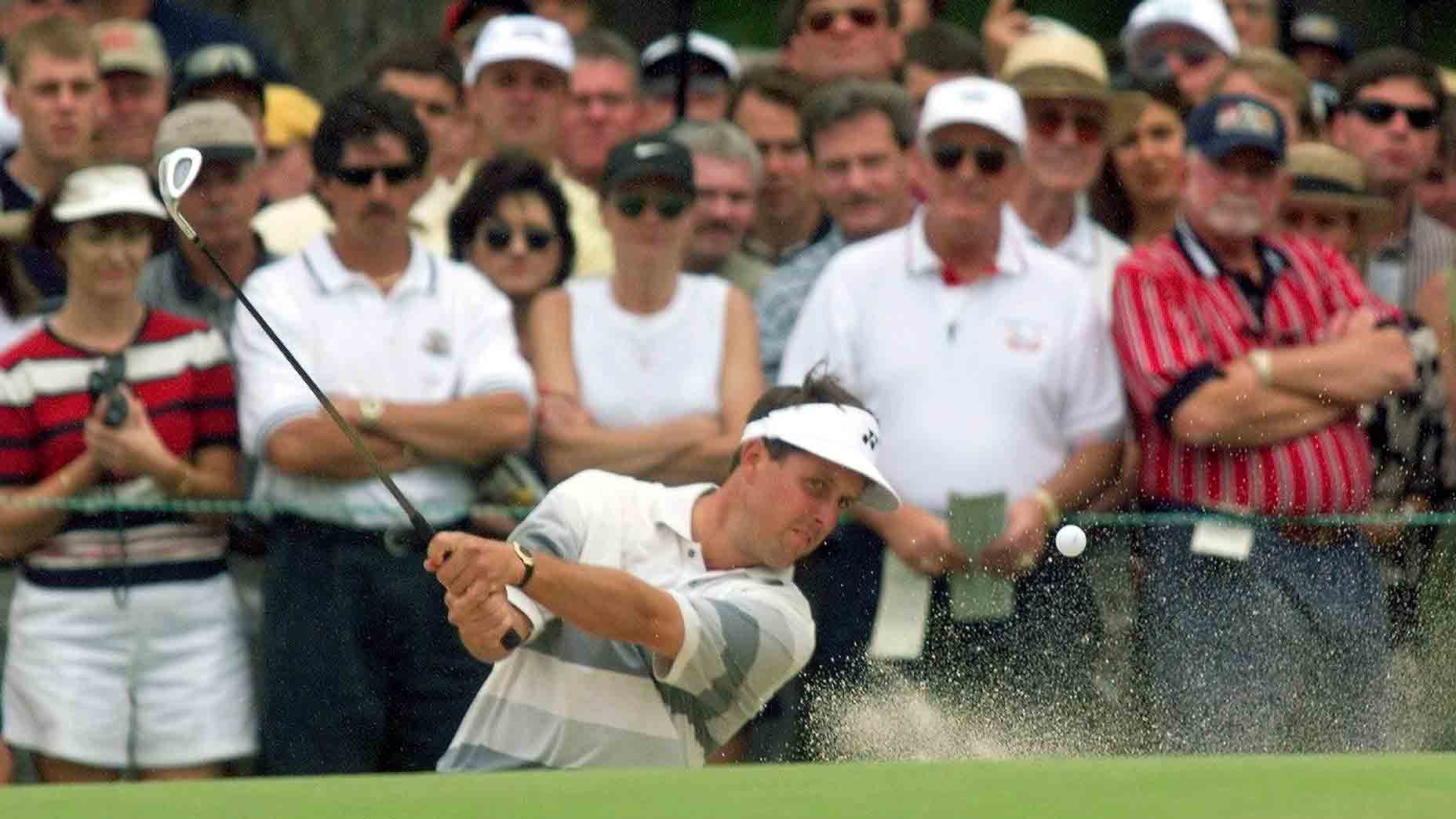
When did he get in that week?
Mackay: “I believe he came in Tuesday night and that he played a practice round on Wednesday. And then of course he had the beeper, the infamous beeper that he handed to me and said: ‘If you want to keep your job, you’re going to let me know when this thing goes off.”
When did he first give you the beeper?
Mackay: “Right when I saw him.”
Did you keep it in the bag or in your pocket?
Mackay: “I kept it in my pocket. Right where I was told to keep it. It was not to get out of my sight while we were playing.”
Did only Amy have the number? Or did it ever go off?
Mackay: “Never went off. But the funny thing was, you got thousands of people out there watching and ultimately a lot of them are in office pools, [and] people that had Phil in the office pool were screaming at me to take the battery out when he started playing well.
“I’ll tell you another interesting thing about that week. I don’t know if you remember this or if there’s any pictures of it. And I’m curious to ask you because I was thinking about it today when you said you wanted to talk. [David] Duval — I would love to know who was No. 1 in the world when that tournament was played. [Duval was.] I know that Duval had been playing exceptionally well and won two or three times in the run-up to, including the Players. I don’t know who was No. 1 in the world, but Duval burnt his hands in a household accident at home the week before and showed up with these bandages on his hands. I remember looking at him going, how’s this guy going to play. I think we played with him the first two rounds, and the guy played so good with these bandages on his hands, he was in the last group on Saturday.”
I don’t even know how you manage that.
Mackay: “Duval was on some kind of heater back then. Obviously Tiger was Tiger and the greatest and all that, but that week was right in the midst of Duval at his peak.”
One more question with the beeper: Did you ever test it to see how loud it would get or the motion it would make if it went off?
Mackay: “[Laughs.] “That’s a great question,” he said, laughing. “And the answer to that is no, I didn’t. But I probably should have. Yeah, I don’t know if that thing was on vibrate or beep or what, but that’s a really good question.”
Breaking down the 4 most difficult greens on Pinehurst No. 2By: Zephyr Melton
I’m sure you’ve been asked this question hundreds of times, but was Phil really ready to leave at a moment’s notice, whatever hole he would’ve been on?
Mackay: “Yeah, without question. It was very similar to what Scottie Scheffler — I think Scottie’s due date was maybe after the Masters this year. Phil would have left just like I believe Scottie would have left during the Masters this year had their situation necessitated that.”
If you remember, what was the talk like between you and him coming off 18?
Mackay: “I don’t imagine there was too much. I just remember I drove him to the airport very quickly. He had chartered a plane to fly home, and I was driving home to Athens, Ga., and dropped him off at the airport on my way out of there. You know, there was nothing to be said, other than he had played great and Payne made this par putt on 16 that was just incredible. Payne had kind of thinned his chip a little bit. I think Phil was up one at the time. Payne was just short of the green. You could tell by the sound that he thinned his chip and it got away from him and it rolled 25 feet past the hole and he had this double-breaking putt coming back down the hill and he made it, and to this day, probably the most impressive putt I’ve ever seen made. Maybe other than Justin Leonard’s birdie putt later that year at the Ryder Cup.”
Me watching it, I’d never seen anyone look more determined than Payne did. It looked like he was in a zone there. Have you ever seen a player like that?
Mackay: “Well, I’ve seen Tiger in his prime. So yeah, I mean, I have, but I get your point. I mean, he makes that putt on 16. On 17, Payne hits it to 6 feet and Phil hits it to 10. Payne hit 6-iron and Phil hit 7-iron, I remember that. Phil was always a big adrenaline guy so in situations like that, he would really start hammering the ball. All I remember, I was proud of Phil. He hit the shot hitting second into 17. And stepped up there on 18 when he absolutely had to and hit the fairway. It was a crazy, crazy atmosphere. One of the visuals I’ll remember for that day that I’ve never seen since was to get to the first tee from the range, you had to cross 18 fairway. So we would cross and they had, at that point, the biggest grandstands at an American event I’ve ever seen before or since. And when those guys left to go to the first tee and obviously they had this incredible leaderboard — you know, Tiger, Vijay [Singh], Duval, Payne, Phil, etc. — when those guys crossed the 18th fairway to go to the first tee, everybody stood up and cheered as they went to the first tee. And there were thousands and thousands of people in these grandstands. And then later that day as we got to 15 and 16, it started to mist. Which is probably why Payne had that — he had taken that rain jacket and literally taken scissors out and cut the sleeves off. It was just this misting. It was like something out of a movie set. If you were writing a book about some titanic golf match, the mist added a whole other level to what was going out there. It was pretty incredible.”
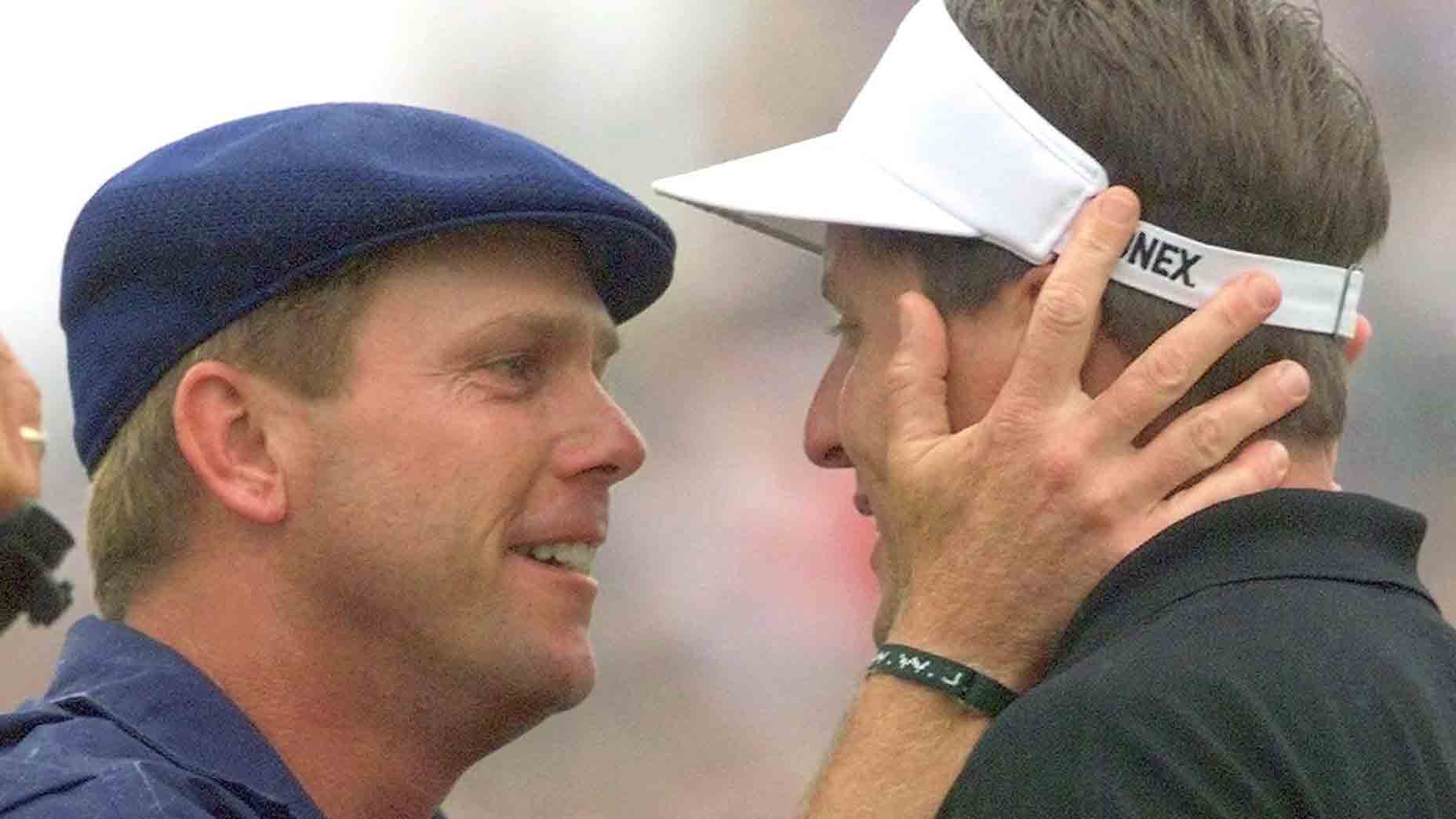
Having experienced that day and watching Payne win, how would you describe his legacy?
Mackay: “I think Payne had this intense love affair with the U.S. Open. Of course, the year before, in ’98, he had a chance to win going head-to-head with [Lee] Janzen, who was playing in front of him there at Olympic Club, and Payne had lost the tournament, I think, by a shot and had driven the ball into a divot on the back nine the last day and I think made a bogey. He’d come excruciatingly close to winning the year before. So I’m sure he showed up with that much more intensity and vigor to win there at Pinehurst. He definitely seemed like a man on a mission. And my goodness gracious, those last three holes, you have to give the guy so much credit. Again, to make the putt he did on 16, make birdie with a 6-iron on 17 and makes the 20-footer up the hill on 18. Sometimes guys go out of their way to win, and that was an example of that.”
Broadcasting
Why the pull back toward it?
Mackay: “Well, I certainly worked there for a few years, and I’m friends with everybody there that has an array of jobs. And TV’s always been a lot of fun for me. And I have a great relationship with Tommy Roy and Sam Flood, who run the show there. … I was just really excited to have the opportunity, and I think Pinehurst is just such a unique golf course that I didn’t want to miss being inside the ropes that week.”
Comparing the two jobs that you’ve had — being an on-course analyst and obviously being a long-time caddie — what would make you more excited: getting a club right for the player, or getting a call right on a broadcast?
Mackay: “Yeah, that’s a tough call. I mean, they’re both extremely rewarding. While the jobs are obviously quite different, it feels good whether you’re a caddie or in broadcasting when you leave at the end of the day and you think, OK, I nailed that one, or I could have done this or that much better. I think they’re both jobs that you tend to leave and kind of critique the work that you did that day. And certainly you know in real time as you are caddying when you’ve made a mistake or could have done something better. So they’re both very rewarding when you get it right. But more than that, I think they’re both jobs that you never stop learning about, or that ability to be better at.”
What’s the biggest thing you’ve picked up in broadcasting over the past couple of years?
Mackay: “That’s really interesting. I just think the thing I love about broadcasting now is that while you’re there on the ground with the incredible equipment that’s available and those very sensitive microphones, I can hear the caddie conversation from 50, 60 yards away as I’m about to call a shot between a player and a caddie. And the fact that I can hear that in real time and kind of break it down if need be — more so for the audience as to what’s going on — I just think is really, really cool. And that’s something that’s become more available in the last few years, I believe.”
2024 U.S. Open viewer’s guide: Tee times, TV schedule, streamingBy: Jessica Marksbury
How hard is that if you’re hearing something perhaps a little insensitive and on live air, to be able to quickly process that to where it’s PG rated?
Mackay: “Well, I got to be honest with you, I’m not sure I’ve ever heard a player-caddie conversation that wasn’t G-rated. I mean, certainly we’ve all heard comments from people that are frustrated on the golf course and whatnot, but I think it’s just more the strategy of it and certainly all these caddies are so good at what they do and they want to get in and get out in as few words as possible. So they’re just trying to make their point and let the player make his decision.”
One last question
The last question I would have — we spanned a lot there. We talked this year’s U.S. Open, we talked the ’99 tournament, Phil. Did you think when you got involved in golf that you would be a part of a lot of these interesting storylines in golf? Could you have imagined that?
Mackay: “No, not even anywhere close to the way it worked out. I started caddying because I loved golf played at the level these guys play it on the PGA Tour and wanted desperately when I got out there in 1990 to stick around for a couple years.
“I wanted to stick around for a couple years and keep my head above water, which wasn’t all that easy to do, especially back in those days. It was a tough business. When I sat around and thought about things that I hoped to experience or be a part of before my caddying days were over, I wanted to work in one Ryder Cup. And I’ve since caddied in 12, amongst some other things. I’m the luckiest guy I know in terms of the way it all worked out for me out there.”
All right, I’ll go back to who’s your sleeper pick for this year’s Open.
Mackay: “I’ve been concentrating too hard. Can I text it to you?”
Yes, you can! No problem, no problem.
Mackay: “Because I take this stuff seriously.”
I look forward to the answer.
A few days later, it came.
“Corey Conners is officially my long-shot pick this week.”

